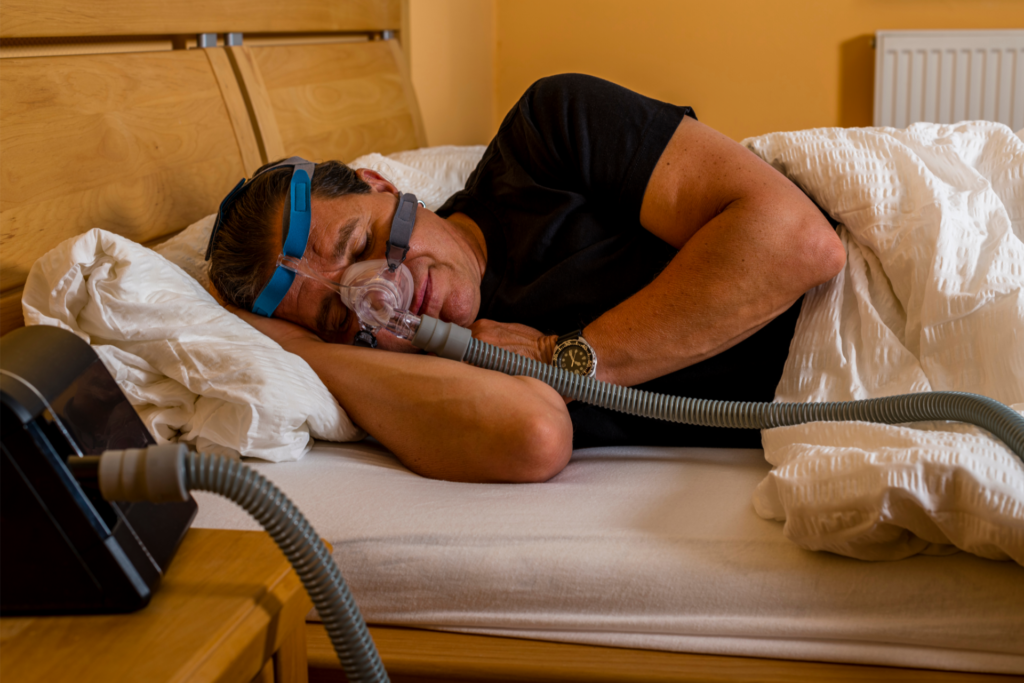In today’s fast-paced world, sleep often takes a back seat to our daily commitments and endless to-do lists. Yet, understanding the significance of sleep is crucial to improving not just our nights but also our days. This report delves into the key insights from a recent sleep study, offering practical advice for those striving for a more restful night.
Understanding the importance of sleep
Sleep is a basic human need, much like air and water. It’s the body’s natural way of recuperating and rejuvenating. A good night’s sleep is integral for physical health, emotional balance, and cognitive function.
In conclusion, prioritising sleep is not merely a luxury; it is essential for overall health and productivity. By understanding sleep’s importance and applying the findings from the sleep study report, you can take meaningful steps towards achieving better sleep, leading to a more fulfilling life.
The science behind sleep
Sleep is a complex process governed by various biological mechanisms. It is primarily divided into two phases: REM (Rapid Eye Movement) and non-REM sleep. Each phase plays a distinct role in mental and physical restoration.
During non-REM sleep, the body primarily focuses on restoring energy and repairing tissues. In contrast, REM sleep engages the brain, facilitating learning and memory consolidation. The harmony between these cycles is vital; disruptions can lead to a myriad of health issues.
Interestingly, the duration and quality of sleep required can vary significantly from person to person, influenced by factors such as age, lifestyle, and individual health conditions. For instance, infants may require up to 16 hours of sleep a day, while adults typically need between seven to nine hours. Furthermore, the quality of sleep is just as important as the quantity; uninterrupted sleep cycles contribute to a more restorative experience, allowing the body to engage fully in the necessary repair processes.

How sleep impacts your health
The repercussions of poor sleep extend far beyond fatigue. Chronic sleep deprivation has been linked to a range of health issues, including obesity, diabetes, cardiovascular diseases, and mental health disorders.
Moreover, a lack of sleep can impair cognitive functions such as attention, decision-making, and memory retention. When we fail to prioritise sleep, we unknowingly compromise our overall wellbeing and productivity.
In addition to these physical and cognitive effects, sleep also plays a crucial role in emotional regulation. Studies have shown that insufficient sleep can heighten emotional reactivity and reduce our ability to cope with stress. This can lead to a vicious cycle where poor sleep exacerbates anxiety and depression, further hindering our ability to achieve restful sleep. Therefore, cultivating healthy sleep habits is essential not only for physical health but also for maintaining emotional resilience and mental clarity. Learn mroe about anxiety at https://www.health.harvard.edu/blog/anxiety-what-it-is-what-to-do-2018060113955
The methodology of the sleep study
To glean insights into sleep patterns and their effects on health, a comprehensive study was conducted involving diverse participants. This study aimed to explore both subjective and objective aspects of sleep.
The participants and their backgrounds
The study involved 1,000 participants from various backgrounds, differing in age, gender, and lifestyle choices. This diversity allowed for a more holistic understanding of sleep habits across different demographics.
Participants provided personal sleep diaries and underwent sleep assessments over several weeks, giving researchers insights into their sleep quality and environments.
The sleep tracking technology used
To complement participant data, advanced sleep tracking technology was employed. This included wearable devices that monitored sleep stages, heart rates, and movement throughout the night, providing objective data alongside personal reports.
The combination of subjective experiences and technology ensured a comprehensive view of sleep patterns. Understanding these nuances enabled the researchers to uncover critical correlations between sleep and various lifestyle factors.
Key findings from the sleep study
The results of the sleep study unveiled several significant insights that underscore the importance of prioritising sleep.
The correlation between sleep quality and lifestyle factors
One of the major findings was the strong correlation between sleep quality and lifestyle choices. Participants who maintained balanced diets, exercised regularly, and managed stress effectively reported significantly better sleep quality. To find more about balanced diets click here.
This demonstrates that holistic approaches to health can positively influence one’s sleep patterns, reiterating the idea that sleep is interconnected with our overall lifestyle.
The impact of sleep duration on daily performance
The study also confirmed that sleep duration directly affects daily performance. Participants who slept less than seven hours a night consistently reported reduced focus, mood swings, and lower productivity levels at work or school.
In contrast, those who enjoyed restorative sleep of seven to nine hours displayed higher cognitive functioning, better emotional regulation, and increased productivity. These findings emphasise the necessity of making time for adequate rest in our busy lives.

Practical insights for better sleep
With the insights gained from the study, implementing effective strategies can significantly enhance sleep quality. Here are some practical suggestions you might consider.
The role of a consistent sleep schedule
One of the simplest yet most effective methods to improve sleep is to establish a consistent sleep schedule. Going to bed and waking up at the same time every day helps regulate the body’s internal clock.
This predictability signals your body when to wind down, making it easier to fall asleep and wake up feeling refreshed. Aim for a routine that caters to your lifestyle, ensuring it’s manageable in the long run.
The influence of diet and exercise on sleep
What we consume and our level of physical activity can greatly impact our sleep. A diet rich in fruits, vegetables, whole grains, and lean proteins can promote better health and sleep quality. Conversely, excessive caffeine, sugar, and processed foods can disrupt our sleep.
Furthermore, regular physical activity is proven to promote better sleep. Aim for at least 30 minutes of moderate exercise most days, but be mindful of timing; exercising too close to bedtime may elevate energy levels and hinder your ability to wind down.
Addressing common sleep disorders
Many individuals struggle with sleep disorders that can greatly impact their quality of life. Recognising and addressing these issues is critical for improved wellbeing.
Understanding insomnia and its effects
Insomnia, characterised by difficulty falling or staying asleep, can lead to chronic fatigue and stress. It’s essential to identify the root cause, whether it’s anxiety, lifestyle choices, or medical conditions, in order to treat it effectively.
Several strategies, including cognitive behavioural therapy and relaxation techniques, can help manage insomnia. Consulting a healthcare professional can provide tailored solutions based on individual needs.
Dealing with sleep apnea
Sleep apnea is another prevalent sleep disorder defined by interrupted breathing patterns during sleep. It can lead to serious health consequences, including heart problems and excessive daytime sleepiness.
Seeking medical advice for symptoms such as loud snoring or excessive fatigue is vital. Treatments may include lifestyle changes, use of CPAP (Continuous Positive Airway Pressure) devices, or even surgical options.
Other resources: Sleep Apnea Study Near Me













